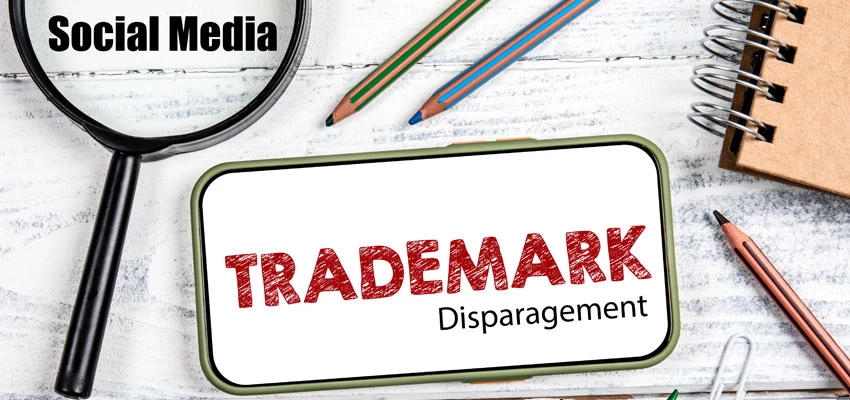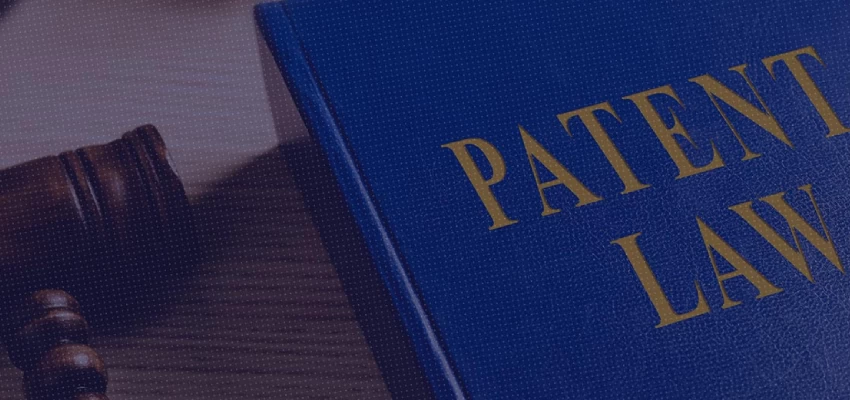A Single Judge of the Delhi High Court, in March 2020, examined whether trade secret protection can be granted to know-how with respect to a particular invention that has been patented outside India, in the case of Prof. Dr. Claudio de Simone &Anr. v. ActialFarmaceuticaSrl. (formerly known as CD Investment Srl.) &Ors1. The Plaintiffs, Professor Dr. Claudio De Simone (Plaintiff no.1); and Next Gen Pharma India Pvt. Ltd. (Plaintiff No.2) instituted a suit against the Defendants, (a) ActialFarmaceuticaSrl, formerly known as CD Investment Srl (Defendant no.1); (b) CD Pharma India Private Limited (Defendant no.2); (c) VSL Pharmaceuticals, Inc. (Defendant no.3); (d) Franco Pirovano (Defendant no.4); and (e) Sun Pharma Laboratories Ltd. (Defendant no.5) for restraining the Defendants from selling their probiotic product formulation under the trademark VSL#3; from linking their product to Plaintiffs’ patented De Simone Formulation in any manner, thereby leading to passing off the Plaintiffs’ formulation, unjust enrichment and unfair competition. The Single Judge vide order dated 17.03.2020 dismissed the suit of the Plaintiffs as being non-maintainable due to lack of cause of action in the absence of any patent protection over Plaintiffs’ formulation in India.
The Single Judge further held that the Plaintiffs’ were not even the owner of the mark VSL#3, therefore no relation could be established between the said mark and Plaintiffs’ formulation to lead to a conclusion of passing off. Furthermore, it was held that the know-how associated with Plaintiffs’ formulation, the breach of which had been pleaded by the Plaintiffs, cannot be termed as a trade secret/confidential information since the said know-how already existed in the public domain due to a patent having already been granted over the said formulation in the United States. Since the suit was rejected on maintainability, no summons were issued to the Defendants and thus the Defendants were unrepresented.
Brief facts:
The Plaintiffs filed a suit C.S.(OS) 576/2019 against the Defendants claiming that the Defendants’ act of selling their new product formulation under the name VSL#3 is amounting to passing off of its products as those of the Plaintiffs’. It was pleaded that previously by virtue of a licensing agreement the Defendants had been selling Plaintiffs’ De Simone Formulation under the name VSL#3 and that passing off being essentially a tortious action, is not limited to unregistered trademarks and applies to any act which free rides on the work or goodwill or reputation of a third-party, including know-how. The Plaintiff no.1 had come up with a pro-biotic formulation formed by mixing eight strains of bacteria named De Simone Formulation in the late 1990s and patented it in the United States under the U.S. Patent No. 5716615 dated 10.02.1998 and which patent expired on 09.02.2015. Plaintiff no.1 being the co-inventor and the sole owner of know-how, strain selection and blending ratio of the said formulation had kept it as a secret. Plaintiff no.1 established Defendant no.1 in Italy and Defendant no.3 in U.S.A. and also became the CEO of Defendant no.3 under the Product Development and Collaboration Agreement dated 11.07.2000 for exploitation of De Simone Formulation. That the Defendant no.3 acquired ownership rights over trademark VSL#3 on 18.09.2000 and vide Patent License Agreement dated 30.01.2001, the Plaintiff no.1 granted license for commercialization of De Simone formulation patent to Defendant no.3, till the expiry of the patent.
On 28.01.2010, the Plaintiff No.1 and Defendant no.3 entered into a Know-How Agreement so that Defendant no.3 too could continue to market De Simone formulation in USA even after expiry of the patent and the said Know-How Agreement was to become effective upon the expiration of the Patent Licence Agreement dated 30.01.2001 and was to remain in effect till 31.01.2016 with right to Plaintiff no.1 to terminate earlier than that. For Indian territory, vide Know-How Agreement dated 06.12.2004, Plaintiff no.1 granted permissive rights for a period of ten years starting from 06.12.2004, to Defendant no.2, to import De Simone Formulation and further market the same in India. Thereafter, Defendant no.2 obtained Import Drug Licence from Drug Controller General of India (DCGI) for De Simone Formulation and the DCGI approved De Simone Formulation for treatment of rotavirus diarrhoea in children, irritable bowel syndrome and ulcerative colitis. Then disputes arose between Plaintiff no.1 and Defendants, when Defendants decided to modify the formulation and sell the modified formulation under the name VSL#3 without obtaining necessary permissions from DGCI.
Due to such disputes Plaintiff no.1 opted out of the arrangements with the Defendants and ended the Know-how Agreements with Defendant no.3 and Defendant no.2 for USA and Indian territories respectively. The Plaintiff no.1 stopped supplying the said formulation to the Defendants and started marketing its formulation in India through Plaintiff no.2 and obtained a license to use the mark VSL#3 from Defendant no.2 on payment of royalty. The Plaintiff no.1’s formulation was available in India under the name VSL#3 till March 2018 with first sale under the said name being in 2007. Therefore, the Plaintiffs contended that the said mark VSL#3 had come to be associated with Plaintiffs’ formulation and had acquired secondary significance as well as good and reputation in the market. The Plaintiffs also contended that the Defendants by way of reverse engineering of De Simone Formulation are trying to sell counterfeit formulations under the name VSL#3 with the same trade dress as used to market De Simone Formulation earlier and have also relied on the clinical test results of De Simone Formulation published on their websites under the name of VSL#3. The Plaintiffs also contended that in such a scenario, new VSL#3 being marketed by the Defendants as a probiotic food is likely to cause deception and confusion amongst buyers, traders and medical practitioners at the risk of health of patients.
On these grounds, the Plaintiffs prayed for permanently injuncting the Defendants from (i) manufacturing/importin/advertising/selling their new product or any other formulation amounting to drug without getting appropriate approval from DCGI; (ii) manufacturing and selling their new product under the brand VSL#3; and (iii) from linking / relating their new product to Plaintiff no.1 or to De Simone Formulation.
The Single Judge on going through the facts of the case questioned the Plaintiffs on the maintainability of the case since the Plaintiffs did not have any right over the use of the mark VSL#3 and since a patent was already granted on the De Simone Formulation in U.S.A., the know-how associated with said formulation was already in public domain and no trade secret protection could be extended to the same sans the know-how Agreements. The Single Judge dismissed the suit of the Plaintiffs on the ground that the Plaintiffs did not have any right on the use of the mark VSL#3 which admittedly belonged to the Defendant no.2 and therefore, no passing off could be claimed by the Plaintiffs against the Defendants due to the use of the said mark. Further, the Single Judge held that even in view of the know-how Agreement, the Defendants cannot be said to be committing passing off with respect to the Know-how of the Plaintiff no.1 passed to the Defendants since know-how/trade secret/confidential information is not a ‘property’ and no relief in rem can be claimed with respect to it. It was also held that such know-how of the Plaintiffs with respect to the said formulation could not be protected as a Trade Secret since the same was already in the public domain since a patent could not have been granted without disclosure of the so called ‘know-how’. The Single- Judge thus dismissed the case of the Plaintiffs for failing to disclose any cause of action against the Defendants.
Contentions of the parties:
The Plaintiffs contended that the suit was primarily for passing off and unjust enrichment by the Defendants who were seeking to sell the new VSL#3 formulation by relying on studies and reputation of De Simone Formulation belonging to the Plaintiffs. The Plaintiff submitted that even though they do not have any ownership rights over the mark VSL#3 under which the Defendants’ product was being sold, still the mark VSL#3 had come to be associated with the Plaintiffs’ De Simone Formulation owing to use thereof for sale of Plaintiffs’ formulation for over a decade. Therefore, the said mark had acquired secondary significance in relation to the said formulation and any attempt on the part of the Defendants to sell their new product under the same mark coupled with their act of placing reliance on studies relating to De Simone Formulation, constituted an act of passing off and unjust enrichment falling under the broad genus of unfair competition. To claim passing off against the Defendants, the Plaintiffs submitted that an action for passing off being essentially a tortious action and is therefore, not limited to unregistered trademarks and applies to any act which free rides on the work or goodwill or reputation of a third party. The Single judge raised a query to the Plaintiffs if the suit was barred under Section 4 of the Specific Relief Act, 1963 which provides that specific relief can be granted only for the purpose of enforcing individual civil right and not for mere purpose of enforcing a penal law. In response to the said query, the Plaintiffs contended that business goodwill is an asset and species of ‘property’ and therefore, Section 4 of the Specific Relief Act, 1963 extends to enforcing a right of a party to goodwill and reputation enjoyed by its product. The Plaintiffs also contended that the mala fide of the Defendants was also evident from the defendants using the mark VSL#3, earlier used with respect to a drug, now with respect to a food supplement and such action being harmful for the public and in violation of the notification issued by the DCGI. The Plaintiffs also contended that the Defendants relied on the studies relating to De Simone Formulation and which is harmful to consumers interest.
Decision of the court:
The Single Judge, after considering contentions of the Plaintiffs and replies given by them in response to the queries raised by the Judge on the maintainability of the suit, dismissed the suit filed by the Plaintiffs for lack of cause of action against the Defendants. The Single Judge held that the Plaintiffs alleged passing off by the Defendants with respect to a patented product, De Simone Formulation. However, the patent pleaded was with respect to De Simone Formulation under the laws of U.S.A. and not in India. The Judge held that unlike in trademarks, wherein common law right of passing off is recognised under Section 27(2) of the Trademarks Act, 1999, no such right is recognised in an invention under the Patents Act, 1970. Also, the patent in favour of the Plaintiff if any, had expired on 09.02.2015, therefore, even if such common law rights were recognised under the Patents Act, 1970, the same would have been irrelevant for the present purposes. The Single Judge relied on the decisions of Bristol-Myers Squibb Holdings Ireland Unlimited Company vs. Natco Pharma2 ,Novartis AG vs. Union of India3 and on Justice Ayyangar Committee Report on the Revision of Patent Laws to hold that there can be no right in any invention save in accordance with the Patents Act. The intellectual property of patents, unlike of trade marks, is purely and simply a statutory right and there are no rights including claims in tort of unfair competition or unjust enrichment, in intellectual property of an invention save as provided under the Patents Act.
The Single Judge also held that the relief sought by the Plaintiffs could have been possible by way of an action for breach of the common law duty of confidence, which is a right in personam against an individual but not as a propriety right in such information, which is opposable in rem. The Single Judge also held that no restraint can be put on the Defendants for their use of the mark VSL#3 or the sale of their product under the said mark even in the context of the Know-how Agreement. This is so because the same would be in violation of Section 27 of the Contract Act, which makes void i.e. unenforceable, every agreement by which anyone is restrained from exercising a lawful profession, trade or business of any kind. The Single Judge rejected the argument of the Plaintiffs that an invention which does not qualify as patented product and has no property right therein, can acquire property rights by the third person entering into a Know-How Agreement and thus claiming confidentiality. The Single judge in this respect placed reliance on the case of Navigators Logistics vs. Kashif Qureshi4 to hold that confidential information and trade secrets are not equated to property in India. The Single Judge rejected the contention that know-how is different than patent by holding that in case of patented inventions, a patent cannot be granted without complete disclosure of information which is required to work the invention sought to be patented. Therefore, this disclosure of information necessarily involves disclosure of know-how and the Plaintiffs cannot contend that while a patent was granted on their formulation in the U.S.A. but the know-how required to work the patented invention was not disclosed by them and kept as trade secret. The Single Judge further held that information claimed to be confidential can be protected as trade secret only if such information is not available in the public domain and is hence unknown to others. Since the Plaintiffs have no subsisting patent protection in India, and since the patent granted in US has expired, the innovation, as noted above, is in public domain. The Single Judge finally held that the claim for trade secret protection cannot be sustained and the Defendants cannot be restrained from manufacturing their product formulation under the VSL#3 mark, in spite of the Know-How Agreement, as otherwise it would amount to judicial creation of an extra-statutory monopoly for perpetuity in the invention, in contrast to the scheme of Patent Act, 1970 that seeks to bring an invention to public domain after the expiry of the term of the patent.
Conclusion
The obvious and unmistakable take away from this case is that no propriety right can be vested in the know-how/trade secret/ confidential information as they cannot be equated to a ‘property’. That the right to enforce know-how/trade secret/ confidential information is a right in personam and cannot be enforced by way of a common law remedy such as passing off. This case also shows that information/know-how associated with a patented invention automatically enters the public domain on patent being granted and post its expiry can be used by all and therefore, cannot be termed as confidential.
[The author is Senior Associatein IPR practice in Lakshmikumaran& Sridharan, New Delhi]
- C.S.(OS) 576/2019; order dated 17.03.2020
- 2020 SCC OnLine Del 200
- (2013) 6 SCC 1
- 254 (2018) DLT 307











